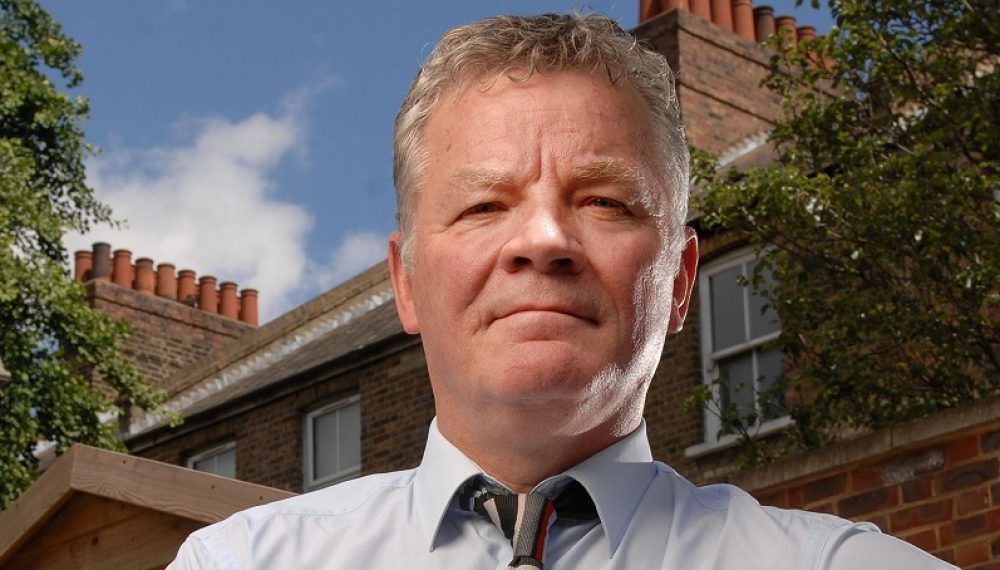Sir Kevan Collins has been appointed as the government’s “education recovery commissioner”.
Downing Street said in a press release this evening that Collins would “oversee a comprehensive programme of catch-up aimed at young people who have lost out on learning due to the pandemic”.
However apart from repeating a commitment to provide £300 million more catch-up funding this year, no further details of the programme have been released.
Prime minister Boris Johnson had also promised “specific initiatives for summer schools and a Covid premium to support catch-up”. The press release today said “potential plans” for summer schools would be “developed in partnership with the education sector”.
Collins was previously chief executive of the Education Endowment Foundation, one of the organisations running the government’s flagship National Tutoring Programme.
In his new role he will “work with government to deliver measures that will support children who have missed out on face-to-face education due to extended school closures.
“This will include addressing factors such as curriculum content and quantity of teaching time in the coming months, to ensure the impact the pandemic has had on learning is addressed as quickly and comprehensively as possible,” the press release added.
The announcement comes after Schools Week revealed this week the promised expert group to find solutions for uneven lost learning across the country had been “refocused”.
Johnson said Collins’ “experience and expertise will help ensure every young person is supported to catch up on their education and gain the skills and knowledge they need to be able to seize opportunities in future”.
Collins, who has worked in the sector for 30 years including as a teacher and director of children’s services, will report directly to the prime minster and education secretary Gavin Williamson. He will “consult closely” with parents, teachers and schools in the role.
Williamson added Collins is a “tremendous asset to those young people, their families, and everyone working in education who have my lasting gratitude for their efforts to support young people throughout the pandemic”.








Once again money spent on too many managers. Solution’s simple. Reduce the content taught and the content examined for the next few years. There’s already a catch up tutoring initiative in place to help struggling students. Then gradually phase the system back to normal. Make the use of technology in lessons a requirement for all schools and make it compulsory for all schools to develop online to support more motivated students. Investigate the use of online assessments on demand to monitor progress and achievement. This would accelerate learning and you would find that before long students had not only caught up but we’re actually ahead of expectations. Basically moving schools from Victorian style learning to the 21st Century. Easy and possible.
Is there any value in the idea of cancelling this (2020-2021) academic year?
And when children return to school ( maybe March?) – particularly primary aged children , let them follow a Maths/ English/ Science curriculum for half the day, the rest let them follow other “enjoyable” subjects – sports, Arts , music, drama, dance , story telling, cookery , creative crafts, as well as planned out- of- school visits.
Bring in out- of – work artists, story writers ( we have Michael Morpugo in our area) musicians, dance and drama students to engage and encourage children to develop these skills. Children always remember these activities more than when they learnt the basic subjects. There’s also room for those with special skills in mental health to help our youngsters. And since finances , for some families are tight, we need to teach them how to “ balance the books”.
For seniors why not defer their decision to follow a certain career path?
Some do not know what they want to do at seventeen or eighteen. Some won’t thrive at university. Maybe they can be given a “cash voucher” to be used whenever they need it for training purposes, when their minds are more mature.
Surely we must now consider repeating the whole school year, from reception right through to sixth form and possibly beyond?
Great to see Kevan at the centre of this. A long time since my Chief Education Officer and National College for School Leadership days but my instincts remain. I agree with the voices calling for something as fundamental as rethinking year groups and transition. There will be costs and the independent sector will worry about fees but the stakes are high anyway. Be bold.
There is much speculation in the press about how children will ‘catch up’ from their lost learning. When children return to school after lockdown there shouldn’t be an added pressure for them and their educators to ‘catch up’. The education standards are man-made targets. Streamline the curriculum and/or move objectives to the year group above and there will be no need to put extra pressure on the education system. Children should celebrate their achievements, progress and learning, not constantly be told they are behind.
My son gained his PGCE in June 2020. Only 4 of his cohort of 27 NQTs have obtained jobs in the teaching profession, having all been encouraged by the government, and in the case of those in shortage subjects be awarded substantial bursaries to enter it. The situation for NQTs is dire. Whilst politicians, the media and the profession endlessly discuss the need to provide resource and support for students they appear unconcerned at the loss of a year’s cohort of qualified, committed and eager young professionals desperate to contribute. Understandably schools have been reluctant to take on NQTs when they are under the pressure they are, and this problem for NQTs has been compounded by the competition they are facing in the jobs market from supply teachers who have been without work for months. However, newly qualified/qualifying doctors and nurses were utilised to play a key role in dealing with the medical consequences of the pandemic, so why are NQTs being overlooked in the search for a strategy for education recovery?
I would like to point out to Sir Kevin that some children in the past year have received no education at all. I am referring to children such as my 13 year old grandson who has been waiting for an Autism assessment for over 3 years. Lockdown has increased his anxiety issues greatly to the extent that he no longer leaves the house. He simply can’t manage to cope with school without the necessary support he needs but cannot get the support with out the assessment being completed. It is a vicious circle. Here in Hertfordshire where I live as of Aug 19 749 children were on the waiting list with 6 cases being dealt with a week! No wonder there is a back log of cases. Multiple this over the country and the number must be immense.
It is theses children who deserve catch up help and tutoring. and in no circumstances must be overlooked. They have been left floundering, abandoned and left on the scrape heap for long enough. Please don’t forget them Sir Kevin Collins.